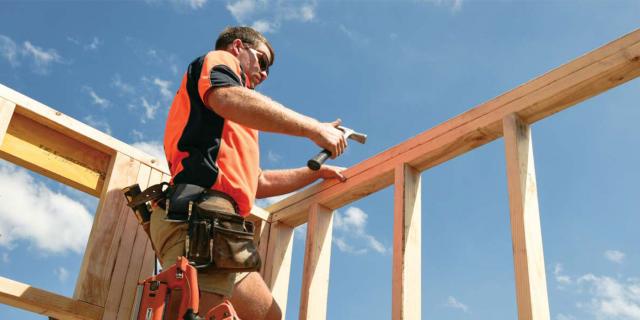What's the difference between Public Liability and Products Liability? | Master Builders Insurance Brokers
In general, contractors in the building and construction industry are well aware of the need to hold public liability insurance. As well as being a common contractual requirement, having public liability insurance is just good business practice and plain good sense. Liability claims against you, particularly serious personal injury cases, can run into many millions of dollars.
What is products liability insurance all about?
To answer this question, it must first be understood that the basic covers for public liability and product liability insurance are the same in that they both provide protection for amounts you (the insured party) may become legally liable to pay for compensation (damages), in respect of third party (other persons) personal injury or property damage, as a result of an occurrence in connection with your business.
|
|
As well as being a common contractual requirement, having public liability insurance is just good business practice and plain good sense. |
However the significant difference between the two is that public liability insurance provides cover for occurrences that happen whilst your works are actually being performed and products liability provides cover for occurrences that happen after the works have been completed and handed over.
And what this really means is that if you only hold public liability insurance, you are probably only insured for half of what you need. To examine how the different covers work in more detail, consider the following example of a residential additions project, that includes an above ground timber deck.
If during construction, a beam falls and hits and injures the owner, this would be a public liability matter. Once the works have been completed and handed over, it becomes your product.
Now consider that same job is completed and handed over. Some months or years later, the deck collapses and injures the owner. This is a products liability matter.
How does each policy apply in these circumstances?
A most important aspect to appreciate is that both public liability and products liability policy coverage will trigger from the date the occurrence causing the liability actually happens. Put simply, you must have insurance in force on the date the incident occurs.
Making sure you have cover for events that happen during the construction period (public liability) is relatively easy, as this is a clearly identifiable period of time and all that is necessary is to ensure you have insurance in place for that period.
But incidents causing liability that are attributable to your works after completion and hand over (products liability) is an entirely different matter. The period of your exposure to these claims is open ended, as they can arise from occurrences that may happen at any time in the future.
What is the easiest and most cost effective way to be properly insured?
MBA Insurance Services recommends the most effective method to manage your differing exposures and policy response, is to arrange both public and products liability insurance under a combined annual policy that will cover all of your works.
As mentioned previously, the golden rule is to make sure you have insurance in force on the date an occurrence causing a claim against you actually happens. With an annual policy, you will have continuous coverage in place for occurrences that happen at any stage throughout the policy year, irrespective of whether the claim against you arises from your current works in progress or your completed works.
It is worth noting that insuring job by job can leave you seriously exposed to uninsured products liability claims, as you only insure each job for a specified period and this method makes no allowance for claims that may arise from completed works. And leaving your business exposed in this way is very unnecessary as normally, an annual policy based on your turnover, will cost less than the total of the separate premiums you would pay on a job by job basis.
How long can I be held legally responsible for liabilities from completed works?
This should not be confused with any statutory warranties applicable under building regulations, as these relate principally to responsibility for the rectification of faulty works.
Your liability at common law for damages caused by completed works is different and has no time limit. There may be restrictions applicable to the amount of time a person must submit a claim after an injury or damage to their property occurs, but there is no time limit on the period between completion of your works and when damages for which you can be held responsible can happen.
Related products




